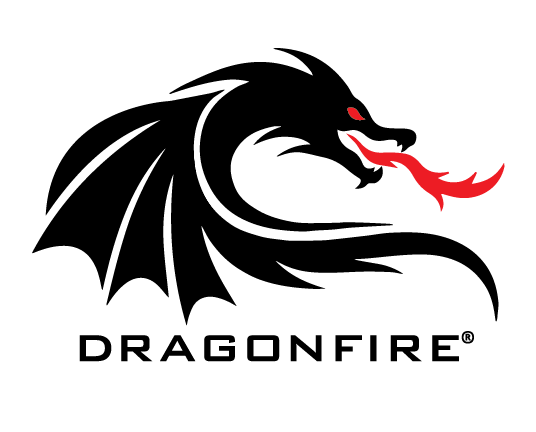1. Introduction: The Role of Factions in Shaping Power Dynamics in Modern Warfare Games
Factions are fundamental building blocks in many modern warfare games, acting as organized groups that influence narrative arcs, gameplay mechanics, and player choices. Defined as distinct social or military units within game worlds, factions serve to create depth, conflict, and immersion, shaping how players experience virtual environments. Their significance extends beyond mere storytelling; factions establish power hierarchies, influence resource control, and define alliances or rivalries, thus driving the core dynamics of gameplay.
This article explores how factions serve as pivotal elements in shaping power structures within modern warfare games. We will analyze their roles as narrative devices, mechanisms of influence, and social constructs, supported by practical examples and research, including modern illustrations like Four shots to Freedom free spins as a contemporary case of faction-inspired engagement.
Go to: Factions as Narrative Devices
Go to: Factions and Player Agency
Go to: Factions, Power Struggles, and Economy
Go to: Visual and Cultural Indicators
Go to: Non-Obvious Dimensions
Go to: Evolution of Faction Power Dynamics
Go to: Conclusion
2. The Concept of Power in Faction-Based Systems
In modern warfare games, factions establish their authority through hierarchical structures, often mirroring real-world military or social organizations. Hierarchies are reflected in in-game rank systems, command chains, and leadership roles, which influence how factions operate and expand their influence. For example, in titles like Call of Duty or Battlefield, different factions possess varying degrees of military strength, technological access, and strategic positioning, shaping the power dynamics on the battlefield.
Power distribution among factions hinges on resource control—such as weaponry, territory, or intel—and influence over other groups or territories. This distribution creates a competitive environment where alliances form and rivalries intensify. For instance, in multiplayer modes, allegiance to a faction can determine access to unique weapons or abilities, directly affecting gameplay outcomes and strategic decisions.
Research shows that players tend to gravitate toward factions that offer greater influence or prestige, reinforcing the importance of faction allegiance as a determinant of in-game success and identity formation. These systems often employ reputation mechanics, where player actions impact faction standing, further intertwining power with individual progression.
3. Factions as Narrative Devices: Building Immersive Worlds
Factions serve as crucial storytelling elements, creating conflict, alliances, and complex social dynamics. They anchor narrative arcs, motivate character development, and deepen immersion. For example, in The Witcher 3, various factions like the Nilfgaardian Empire or the Northern Realms are central to the storyline, shaping player choices and the game’s political landscape.
Popular games often showcase faction-driven storylines that reflect real-world conflicts—such as ideological clashes, resource struggles, or territorial disputes. These narratives provide players with meaningful choices that influence faction alliances and game outcomes.
Beyond traditional conflict, some titles incorporate unique elements—like underground gambling in Yakuza 0 or Hearthstone’s strategic card battles in World of Warcraft—to reflect faction social dynamics. These elements enrich the universe, illustrating how factions extend into cultural and social facets, adding depth and authenticity to the game world.
4. Factions and Player Agency: Shaping Player Identity and Choices
Loyalty to a faction profoundly influences player decision-making and gameplay style. Players may choose factions aligned with their preferred tactics—stealth, brute force, diplomacy—or narrative preferences. For example, in Mass Effect, siding with different factions impacts dialogue options, story progression, and character relationships.
Reputation systems further deepen this connection. As players undertake missions or make decisions affecting faction standing, they unlock unique benefits or face sanctions. These reputation mechanics encourage players to consider their actions carefully, fostering a sense of consequence and immersion.
Faction-based customization—such as unique skins, weapons, or abilities—also enhances player identity. Titles like Destiny 2 exemplify this, where allegiance to specific factions unlocks exclusive gear, shaping both aesthetics and gameplay approach.
5. Factions, Power Struggles, and In-Game Economy
| Faction | Resource Control | Economic Power | Impact on Gameplay |
|---|---|---|---|
| Faction A | Territory, Weapons | High | Strategic dominance |
| Faction B | Intel, Resources | Moderate | Sabotage and espionage |
In games like Bullets And Bounty, factions influence the in-game economy by controlling resources, bounties, and influence over markets. For instance, factions may assign bounties that impact player incentives and rivalries, as well as dictate the flow of resources essential for progression.
Faction conflicts often lead to market fluctuations, supply shortages, or inflation within the game, mirroring real-world economic principles. These dynamics compel players to strategize around faction power, resource availability, and economic incentives, making faction influence a core aspect of gameplay depth.
6. Visual and Cultural Indicators of Faction Power
Design elements such as engravings, insignias, and color schemes serve as visual symbols of faction prestige. For example, in Counter-Strike: Global Offensive, the detailed engravings on the R8 Revolver skin convey status and faction identity, acting as markers of in-game reputation.
Cultural motifs—like specific symbols, uniforms, or aesthetics—help establish faction identity and reinforce power hierarchies. These visual cues enable players to instantly recognize faction affiliations and rivalries, adding a layer of strategic awareness and cultural depth.
Visual and cultural indicators are more than mere decoration; they function as social markers that communicate faction power and influence, often fostering a sense of pride or rivalry among players and within the game universe.
7. Non-Obvious Dimensions: Factions and In-Game Mini-Games and Subcultures
Mini-games, such as poker in Yakuza 0, reflect faction social dynamics, serving as informal arenas for negotiation, alliance-building, or rivalry. These activities add layers of social interaction, portraying factions as living communities rather than static entities.
Subcultures within factions—like underground groups or specialized units—can influence power structures significantly. For instance, in GTA Online, criminal factions develop their own social hierarchies and informal economies, shaping in-game power and influence beyond official structures.
Incorporating such elements enriches the realism and complexity of faction interactions, illustrating how social, cultural, and informal activities sustain and challenge formal power hierarchies within game worlds.
8. The Evolution of Faction Power Dynamics in Modern Games
Historically, factions in games were static, often fixed at the game’s outset. Today, they evolve dynamically, influenced by player actions, updates, and expansions. For example, in Destiny 2, faction influence waxes and wanes based on ongoing events and player participation, creating a living ecosystem of power.
Developer updates and community feedback play crucial roles in shaping faction systems. New content can introduce shifting allegiances, contested territories, or emergent sub-factions, making faction influence more fluid and reflective of player agency.
Looking ahead, emerging technologies like virtual reality (VR) could further intertwine faction influence with immersive experiences, creating more nuanced and interactive social dynamics. These innovations promise to deepen the impact of factions on game worlds and player engagement.
9. Conclusion: Synthesizing How Factions Shape Power and Player Experience
“Factions are the heartbeat of modern warfare games, providing a framework for conflict, identity, and strategy. Their design influences every layer of gameplay—from narrative depth to economic systems—ultimately shaping how players perceive and interact with the game world.”
In summary, well-crafted factions serve as vital catalysts for engaging, immersive, and strategically rich gaming experiences. They mirror real-world social and political structures, offering players meaningful choices and a sense of influence within expansive virtual worlds. As technology evolves, the potential for dynamic, player-influenced faction systems promises an exciting future for modern warfare games.










